Unfortunately, this deal has expired 3 days ago.
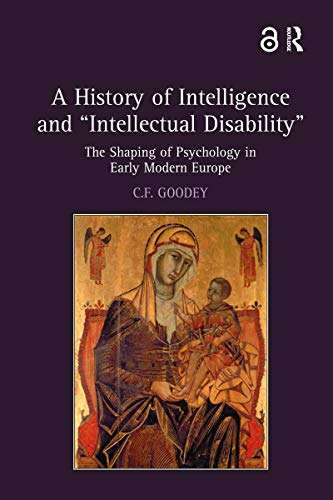
*
251°
Posted 19 June 2023
A History of Intelligence and 'Intellectual Disability': The Shaping of Psychology in Early Modern Europe Free on Amazon Kindle @ Amazon
Shared by
JGiles Super Poster
Joined in 2021
196
1,255
About this deal
This deal is expired. Here are some options that might interest you:
A History of Intelligence and 'Intellectual Disability': The Shaping of Psychology in Early Modern Europe - by C.F Goodey
Currently Free on Amazon Kindle
Starting with the hypothesis that not only human intelligence but also its antithesis 'intellectual disability' are nothing more than historical contingencies, C.F. Goodey's paradigm-shifting study traces the rich interplay between labelled human types and the radically changing characteristics attributed to them. From the twelfth-century beginnings of European social administration to the onset of formal human science disciplines in the modern era, A History of Intelligence and 'Intellectual Disability' reconstructs the socio-political and religious contexts of intellectual ability and disability, and demonstrates how these concepts became part of psychology, medicine and biology. Goodey examines a wide array of classical, late medieval and Renaissance texts, from popular guides on conduct and behavior to medical treatises and from religious and philosophical works to poetry and drama. Focusing especially on the period between the Protestant Reformation and 1700, Goodey challenges the accepted wisdom that would have us believe that 'intelligence' and 'disability' describe natural, trans-historical realities. Instead, Goodey argues for a model that views intellectual disability and indeed the intellectually disabled person as recent cultural creations. His book is destined to become a standard resource for scholars interested in the history of psychology and medicine, the social origins of human self-representation, and current ethical debates about the genetics of intelligence.
Product Details
Currently Free on Amazon Kindle
Starting with the hypothesis that not only human intelligence but also its antithesis 'intellectual disability' are nothing more than historical contingencies, C.F. Goodey's paradigm-shifting study traces the rich interplay between labelled human types and the radically changing characteristics attributed to them. From the twelfth-century beginnings of European social administration to the onset of formal human science disciplines in the modern era, A History of Intelligence and 'Intellectual Disability' reconstructs the socio-political and religious contexts of intellectual ability and disability, and demonstrates how these concepts became part of psychology, medicine and biology. Goodey examines a wide array of classical, late medieval and Renaissance texts, from popular guides on conduct and behavior to medical treatises and from religious and philosophical works to poetry and drama. Focusing especially on the period between the Protestant Reformation and 1700, Goodey challenges the accepted wisdom that would have us believe that 'intelligence' and 'disability' describe natural, trans-historical realities. Instead, Goodey argues for a model that views intellectual disability and indeed the intellectually disabled person as recent cultural creations. His book is destined to become a standard resource for scholars interested in the history of psychology and medicine, the social origins of human self-representation, and current ethical debates about the genetics of intelligence.
Product Details
- ASIN: B01D2F560I
- Publisher: Routledge; 1st edition (16 Mar. 2016)
- Language: English
- File size: 2166 KB
- Simultaneous device usage: Up to 4 simultaneous devices, per publisher limits
- Text-to-Speech: Enabled
- Screen Reader: Supported
- Enhanced typesetting: Enabled
- X-Ray: Not Enabled
- Word Wise: Not Enabled
- Sticky notes: On Kindle Scribe
- Print length: 373 pages
Community Updates
Edited by a community support team member, 19 June 2023


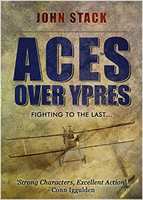
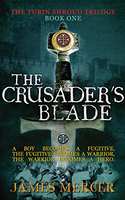
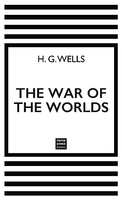

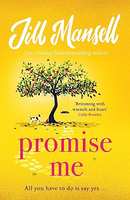


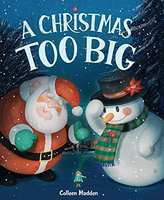
4 Comments
sorted byAnyway this God as a ruler and dictator of one's life is complete BS, the real interesting aspects of Jesus of Nazareth's teachings are a reflection of beautiful humanity. Humans as always seek to re-purpose anything that can cede them power over others and this is why religious organisation as evidenced by the repurposed language above becomes entirely wicked. Myself I discovered Christianity not as a willing participant but as a place to meet people setup by my parents, hypocritically whilst I attended Sunday school each week and a red in the face vexed minister shouted the words of God in our faces and brought forth much anguish they sat at home never ever attending a religious meeting, what was good for me was not for them. Then one day it was all gone and I was freed from the religious doctrine when the Sunday school couldn't afford to keep going. 10 years of religious indoctrination wasted on a boy who questioned everything and didn't accept the fantasies of the organised religious cohort who realised that for all the bluster individually our time is short lived and the mysteries of life many of which are not simply answered by a God.
Now the religions that interest me are Hinduism and Buddhism because even though they speak of deities they are also absolved of them. The fundamental teachings of Christ are virtuous idealism that no human can every completely fulfil but they are lessons of tolerance moulded into victory over hate, they are intrinsic love. Christian Orthodoxy in my belief takes these victories and squanders them for short lived power.
As Fyodor Dostoevsky said :
"So long as man remains free he strives for nothing so incessantly and so painfully as to find someone to worship."
"If the devil doesn't exist, but man has created him, he has created him in his own image and likeness."